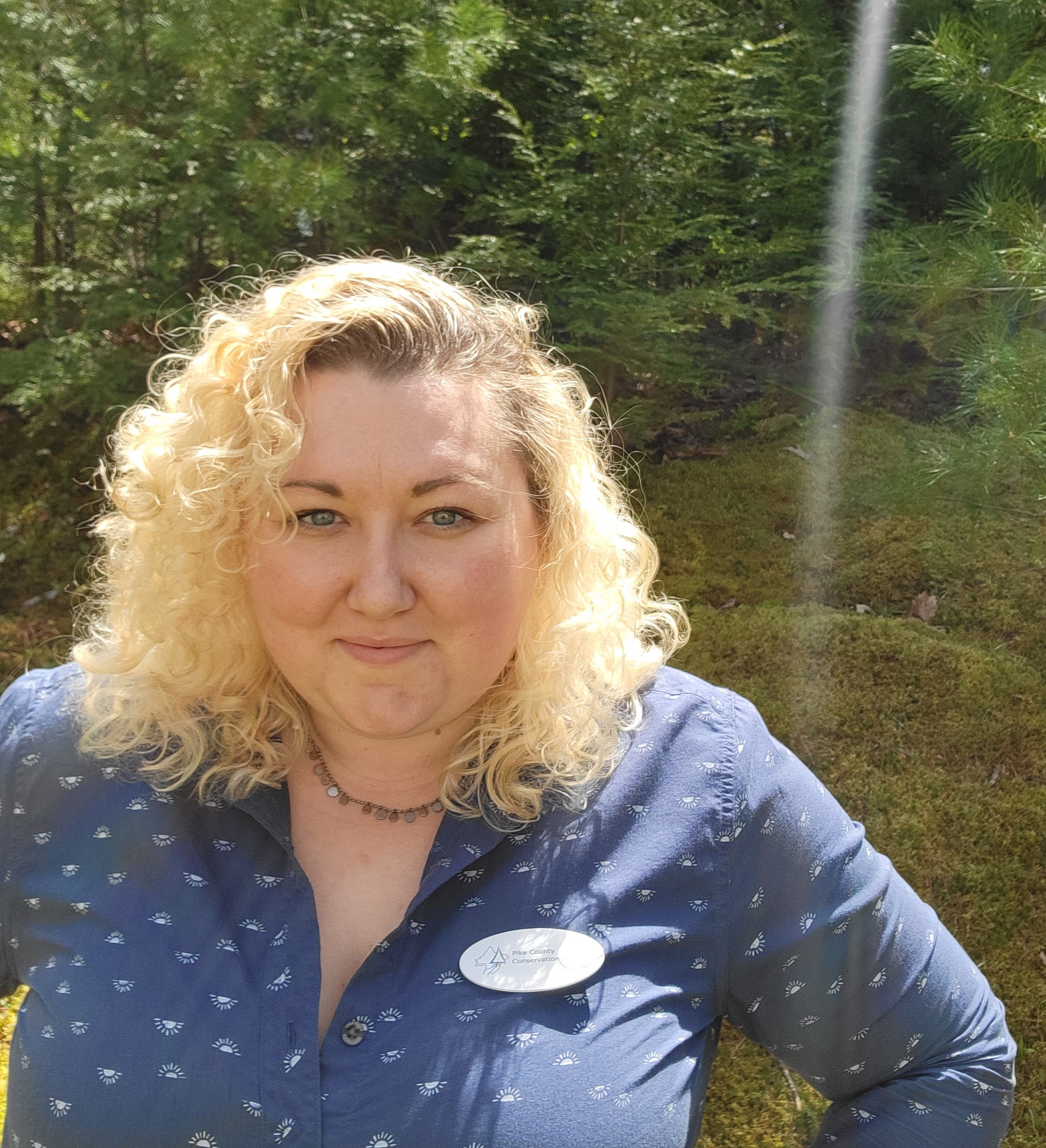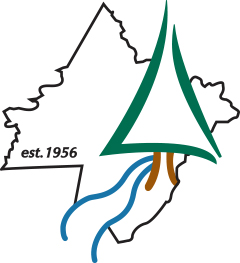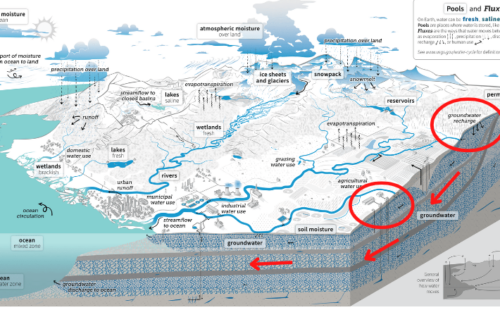News

Where Does Our Water Really Come From?

By: Devan George, Communications Coordinator
When you turn on a faucet in Pike County, that water is most likely coming from groundwater. Pike County is dependent on groundwater to meet its water needs, and it is a vital part of our lives, environment, and economy. Though groundwater can feel like a resource that is always waiting to be drawn up to our faucets, your water has actually traveled a long way to reach your glass.
A watershed is an area of land where all the water that falls on that land will collect in one common point like a lake, pond, or river. Groundwater, like all the water in a watershed, is a part of the water cycle (the new USGS water cycle diagram is below). The water cycle is the way that water moves through the environment, involving evaporation from the earth, condensation in the atmosphere, and precipitation as rain and snow. Another important step in the water cycle is the movement of water after it hits the ground.
It can go one of two places, it can either run off the ground, and become surface runoff, or it can infiltrate into the groundwater (circled in red on the below diagram). When the water infiltrates, it recharges the groundwater, and replaces the water that has been extracted by humans or emerged to the surface as a spring. An aquifer is the layer of permanently saturated ground, that wells tap into. Once water is underground, gravity and pressure push it through the saturated earth, so that it can make its way to the watershed’s one common point (demonstrated by the red arrows on the below diagram). Therefore, wells are pulling groundwater that is not stagnant, but moving through the earth (the green circle in the below diagram).
This movement underground is one of the many ways that we are all connected to each other through water. Non-point source pollution you create on your property, will never stay on your property. If you would like to reduce your non-point source pollution, click here to learn more. “We all live downstream,” meaning that if you want to have nice, clean water, you also must protect water for the next person. If we all do our part, Pike County will continue to have fresh, clean groundwater for decades to come.

